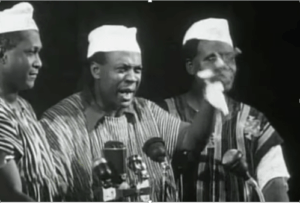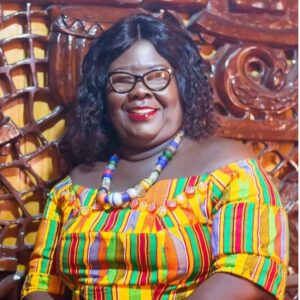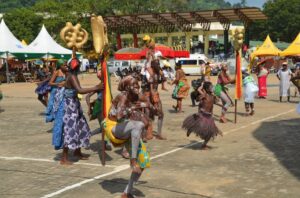GHANA boasts outstanding national tourism potential and resource-mix that are located and founded across the length and breadth of the country as well as an evergreen and burgeoning infant tourism industry which has seen sustained and steady growth and development since 1993.
There are, however, noted challenges and defects on Ghana’s tourism development strategy which have obstructed and stunted Ghana’s rapid tourism development and transformation.
Competitive advantage
Political stability, relative national safety and stability and stature, coupled with warm and hospitable national trait as well as numerous infamous slavery and slave trade footprint of castles and forts along Ghana’s coast are all soft and priceless intangible resources which give the country peerless competitive tourism advantage over competitors as an emerging international tourism hub.
Tourism is indispensable
Tourism and the tourism industries are very crucial, critical, important and indispensable to our national socio-economic expansion, transformation, improvement and modernisation causes, especially as we adopt pragmatic policies and projects aimed to restore disrupted socio-economic growth momentum, and reconstruct the economy from the devastating impact of the COVID-19.
Defects on Ghana’s tourism development strategy
The formal creation of the Ministry of Tourism in 1993 formally repositioned the tourism sector and industry as front burner national socio-economic transformational catalyst. Along the line, emerged noted defects and challenges which obstructed Ghana’s rapid tourism development and national development. Notable among these challenges and defects are:
Poor public funding & budgtary allocation
Tourism is an oustanding capital intensive industry, especially in the areas of product development, packaging and promotional strategy, to enable any destination worth its salt to stand out and transform into a competitive tourism traffic pulling hub and competive cash-cow destination. The public tourism sector – specifically the Ministry of Tourism, Arts and Culture (MOTAC), its prececessors from 1993, and its implementing agencies including the Ghana Tourism Authority, (GTA), National Commission on Culture (NCC), the Ghana Tourist Development Company Ltd. (GTDC), Ghana Museums and Monuments Board (GMBB), the Osagyefo Dr. Kwame Nkrumah Mausoleum and Memorial Park (KNM&MP), Dr. George Padmore Memorial Library on Pan-Afran Research, Dr. W.E.B.Dubois Centre, Bureau of Ghana Langauges, the National Theatre of Ghana (NTG), Pan-African Writers Association (PAWA), and others – has not received the needed and adequate funds, funding and budgetary support over the years.
Lack of national tourism brand identity
Tourism destinations and facilities are brands and products; as such, countries manage these through their national tourism ministries and their destination management entities. Since branding, product development, packaging and brands promotions are integral aspects of competitive destination stature attainment, tourism-conscious countries and destinations commit and invest substantial funds into destination branding, product development and promotion to enable them attract fair market share and repositioned as competitive destinations and brands. Every destination under the sun has outstanding national tourism resources in all four categories. Potential does not automatically translate into a tourism traffic hub. Innovative brand (packaging and promotion) with the right scientific market-research formula, inching target markets, multi-media traditional media mix made up of print, electronic (radio& television, magazines, billboards, handbills, posters, social media – Facebook, Twitter, LinkedIn, WhatsApp). Activation is a man-made strategy in the tourism dichotomy which made destinations stand out as cash-cow destinations and outstanding traffic hubs.

Defective national tourism legislation & legal regime
Societies, professions, vocations/industries and insitutions are governed and guided by rules and regultaions as such legislations, legal enactments and legal regimes (LRs) are very crucial to the success of competitive cash-cow destinations and hubs. Ghana’s current tourism sector is defined and dominated by the Tourism Act 2011 and other related pieces of sub-sector laws including the Ghana Museums and Monuments Board Act 1969, NLCD 387, the National Film Authority (NFA), Film Classification and Development (FC&D) and Film Development Fund (FDF) Act 2016, Act 935 and the Creative Arts Agency (CAA) and the Creative Arts Industry Fund (CAIF) Act 2020, Act 1048.
Others are the National Commission on Culture (NCC) Law 1990, PNDCL 238, the National Tourism Policy 2004, and the Chieftaincy Act 2008, Act 759.
Fragmented & duplication
Obsolete, fragmentation and duplication of roles and mandates among analogue statutory implementing agencies such as GTA, GTDC and NCC, among others are common and noticeable features that are associated and very synonymous with Ghana’s current tourism sector related enactments.
National Festival of Arts and Culture @ 60 …
All roads lead to Cape Coast, 9th – 16th December
By Prince Dennis Klintings with contributions from Efua Apprey , Senior Cultural Officer, Policy Planning, Research, Monitoring & Evaluation & Ama Amponsah Painstil, Public Relations Officer, National Commission on Culture.
“A society without culture is doomed,” – a prominent African adage.
The National Commission on Culture (NCC) is a statutory body created with the responsibility of overseeing the culture of Ghana and all things associated with it under the PNDCL 1990, 238. NCC, as the statutory corporate body, has the mandate to holistically promote, regulate and control the cultural life of the Ghanaian society. As such, NCC is the national agency responsible for managing and couching out the overall cultural perspective and culture life of Ghana.
As captured in the Ghana’s Cultural Policy, among other functions, NCC is obliged to ‘enhance Ghanaian cultural life and develop cultural programmes to contribute to the nation’s human development and material progress through heritage preservation, conservation, promotion and the use of traditional and modern arts and crafts to create wealth and alleviate poverty’. To ‘fosters national unity among the diverse ethnic groups of Ghana by promoting cultural interaction and inter-ethnic understanding through programmes that create an enabling environment for national development’.
NAFAC @ 60
In light of these policy directions, the commission, in 1961, instituted the National Festival of Arts & Culture; and has since been organising this grand event to fulfill its constitutional responsibility.

Madam Edna Nyame, Executive Director, National Commission on Culture
The National Festival of Arts &Culture (NAFAC) has firmly assumed its rightful place in the scheme of national events and activities as a vehicle that celebrates Ghana’s diverse ethnic and tribal customary and cultural groups, practices and value systems which make up, define and identify us as Ghanaians.
The theme for the 60th NAFAC anniversary and 2022 edition is ‘Reviving Patriotism, Peace and Unity through Cultural Diversity for Sustainable Development’. It has been said: “A nation which does not honour its heroes is not worth dying for”. Tracing the historical antecedents of NAFAC to the late Dr. Alexander Atta Yaw Kyerematen (the Founder and the First Director of the Ghana National Cultural Centre, now the Centre for National Culture Kumasi) obviously reveals that the meaning of our theme for NAFAC 2022 celebration is outstanding in several senses; since this year’s edition, aside from the usual display and exhibition of rare cultural pomp and pageantry, will lay the necessary stepping stone for greater future celebrations as has become synonymous to this event.
The celebrations are scheduled from 9th to 16th December, 2022 in the Central Regional Centre for National Culture at Cape Coast, the historic Central Regional Capital, which was also the Gold Coast’s first capital from 1844 until 1877 – before the capital was relocated to Accra. Many nations of the world have developed to where they are today because of the sacrifices, selflessness and patriotism exhibited by certain individuals or group of individual citizens having an allegiance to such nations.
No doubt, one of the surest ways to instill and revive the spirit of patriotism in the citizens of a country is to celebrate and honour the achievements of its heroes. But one may ask: What is patriotism? The standard dictionary definition of the term reads: “love of one’s country”, which explains the core meaning of the term. In a philosophical study of the term however, Stephen Nathanson defines patriotism as involving: (a) special affection for one’s own country, (b) a sense of personal identification with the country, (c) special concern for the well-being of the country, and (d) willingness to sacrifice to promote the country’s good. Thus, patriotism in this sense is seen as “a natural and appropriate expression of attachment to the country in which we were born and raised, and of gratitude for the benefits of life on its soil, among its people, and under its laws”.
As a virtue and an important component of our identity, patriotism can be regarded as an embodiment of such moral values as love for peace, unity, equality and of course, a sense of loyalty to one’s nation. Patriotism can bring a country together around the highest ideals of love for peace, unity and equality. It is thus a central and ennobling disposition that societies cannot afford to do without because it holds the key to our respect and recognition for our individual diversity. In this regard, seeking to revive the culture of patriotism among the citizens of a country while promoting peace and unity through cultural diversity is undoubtedly one of the promising ways nations can use to sustainably develop.
The concept of cultural diversity has been extensively espoused by several authors but in simple terms, it has been explained as a situation of the society in which there is equal opportunity and no one is discriminated against because of their difference. In summary, a more equitable society in which all people are welcome, accepted, and respected simply because they are human. Even though today there is a consensus that each person is different, it still remains very difficult for people to recognise that difference. In fact, there are an infinite number of distinctions for the term ‘diversity’. Examples include cultural diversity, ethnic, linguistics, biological, sexual, functional diversities, and others.
The NAFAC experience
NAFAC encourages everyone to appreciate art and explore the diverse cultures around us. It is the largest celebration of arts and culture in Ghana. This celebration urges everyone to reflect on how art enriches our lives. From music to literature, paintings to photography and theatre (poetry, dance, drama). This programme brings to fore the understanding of art and culture as noble pursuits and necessary to sustain life and development of the people.
This biennial event brings organisations and communities across the country together to celebrate their uniqueness. The week-long celebration covers the vastness of the diverse cultures practised across the nation. This is achieved by collaborating with the 16 Regional Centres for National Culture (CNC).
The celebration attracts a multitude of talents, artists, enthusiasts, performers, entertainers and others. Some participants discover and explore new dimensions of the arts and cultural expressions surrounding them while appreciating and incorporating these new discoveries into their art life. As the country’s largest celebration of the arts, the four goals of NAFAC are to create national, state and local focus on the arts, humanities and culture through the media; to encourage individual artists, cultural practitioners and other organisations nationwide; to provide an opportunity for state, local businesses, government and civic leaders to declare their support for the arts and humanities, and most importantly, to establish a vehicle for raising public awareness about the arts and culture and its role in fostering national development and transformation.
Programmes & activities
Cultural dance and drama performances: These will be led by the various groups from the Regional Centres for National Culture (CNC). There will be symposia, seminars and webinars – all targetted at artists and cultural workers. Tourists den and movie caves are key components of NAFAC, which offer an opportunity for visitors – from both home and abroad – to experience and understand Ghanaian culture. Children are neither left out nor discriminated in the NAFAC buzz as NAFAC activities provide Children’s Island for the younger ones, which is dedicated to and seek to groom, educate and enlighten children with fun activities including storytelling sessions, body painting and traditional games.
Several art booths and stations at the NAFAC ground seek to offer opportunity for artists and artisans to showcase their works and art forms, which also open doors for visitors to express themselves as well as participate in the different tutorials.
Benefits
NAFAC serves as a unique platform which exposes artists and cultural workers to a wider/global audience. NAFAC further provides a suitable platform for commerce, and additionally serves as a bridge between industry practitioners.

Miss NAFAC
While beauty pageants around the world are primarily about putting idealised versions of femininity on a competitive stage, and awarding a royal title and crown to the winner, they are also about using femininity to represent other issues. As diverse as the issues confronting society goes, these contests showcase values, concepts and behaviours that are acceptable and give credence to their sense of self while exhibiting values of morality, gender equity, and place. Beauty queens can become symbols and agents of positive change within a given community or nation.
The Miss NAFAC Cultural Pageant, unlike many other pageants for women, is a leadership-based pageant. The winner is not selected based on votes, it rather emphasizes on scholastic achievement, community involvement, public speaking and strong cultural values. Contestants are expected to possess good human relations, speaking poise, composure as well as interview skills and other outstanding interpersonal qualities.
Conclusion
NAFAC has rightly justified its inclusion, and has contributed in several ways to the development and growth of the creative and cultural sub-sectors, tourism and national socio-economic development and transformation as a whole.
The National Festival of Arts and Culture (NAFAC) has become an important event among other indispensable events on the national cultural and tourism calendar, which has come to stay as a vehicle to uplift, reposition and celebrate artists, creatives and cultural practitioners, and their contribution to national socio-economic development and transformation.

NAFAC is the flagship programme of the National Commission on Culture (NCC) and its Centres for National Culture (CNC) – a corporate body and an implementation agency of the Ministry of Tourism, Arts and Culture (MOTAC).
60th NAFAC anniversary & venue
MOTAC, NCC and partners invite all and sundry to mark December 9th to 16th on their calendar and make sure all roads lead to the Central Regional Centre of National Culture in Cape Coast for NAFAC @60 and NAFAC 2022.
The Writer is Tourism, Brands & Branding, Communication & Marketing Consultant, Practitioner, Analyst, Advocate & Activist
Email: [email protected]










